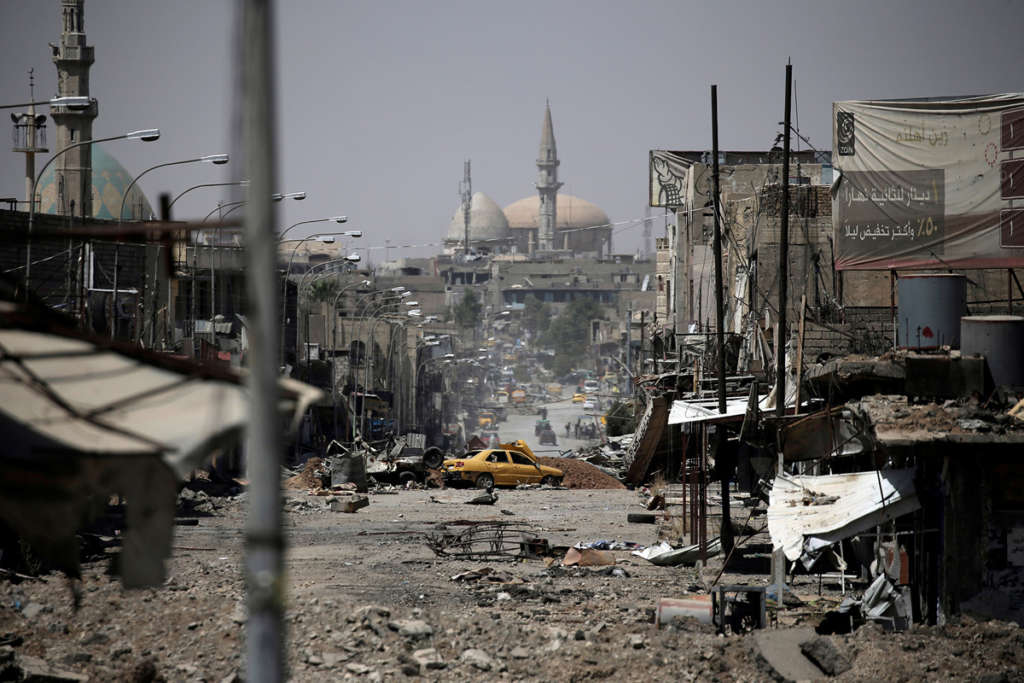London- On this day in 2014, then ISIS spokesman Abu Muhammad al-Adnani announced the establishment of the organization. A few days later the group’s leader Abu Bakr al-Baghdadi proclaimed from Mosul’s Grand al-Nuri Mosque a “caliphate” across territory in both Iraq and Syria.
But after three years, Iraq’s military is closer to total control of Mosul. It is a matter of time before ISIS is defeated inside the city.
After Mosul’s full liberation, the terrorist organization has limited options. It would probably resort to fighting in areas that remain under its control in Iraq and Syria. There are expectations for an imminent battle in Tal Afar where the group’s militants are holed up.
Mosul’s loss would highly impact the morale of the militants and would turn claims on the organization’s expansion obsolete.
So the main choice for ISIS would be to turn into a gang of thugs by fighting Iraqi government forces and their allies and the regime of Bashar Assad in Syria.
But it is not yet clear how its leader would function amid a clear absence of al-Baghdadi, who has made a public appearance only once in 2014. Recent reports have said that the ISIS leader has been killed, including a claim by Russia’s defense ministry that he died in an air strike in Syria last month.
ISIS’ fall in Mosul will accompany its defeat in its de facto capital of Raqqa in northern Syria where the US-backed coalition has made considerable progress to oust the militants from the city.
Experts believe that ISIS supporters would then retaliate by carrying out more “lone wolf” attacks in Western countries although the organization’s ability to plot for operations abroad would weaken greatly following its loss of both Mosul and Raqqa.
As a third option, ISIS could resort to its affiliates in more than one country, including Libya, Egypt, the Sahel in west Africa and Afghanistan.
These affiliated “orphans” could increase attacks after the loss of their main headquarters in Mosul.
